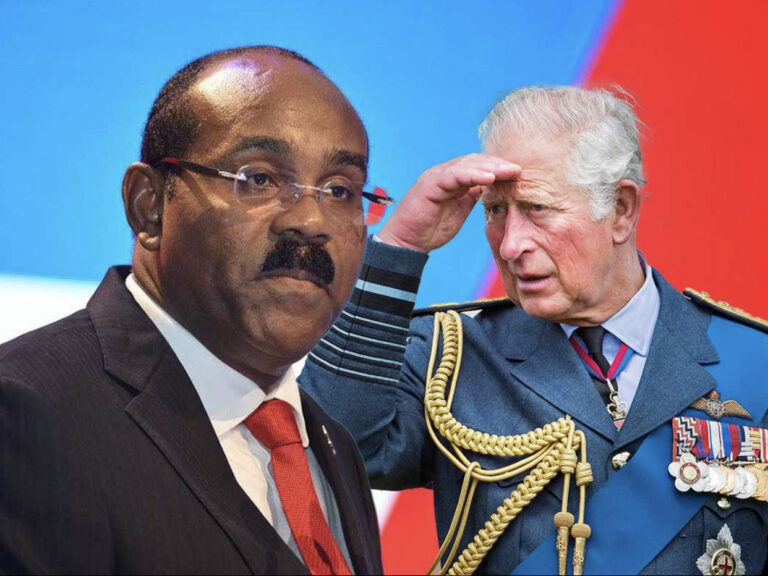Within the next three years, King Charles might no longer be head of state of Antigua and Barbuda.
One of the 14 former colonies that are still obligated to support the British king or queen is the country in the Caribbean.
On behalf of Charles as the new king following the death of Queen Elizabeth II Prime Minister Gaston Browne signed a document among other international leaders.

But minutes later, Mr Browne said he would push for a referendum on whether it should become the world’s newest republic – following in the footsteps of Barbados.
He told ITV: ‘This is not an act of hostility or any difference between Antigua and Barbuda and the monarchy, but it is the final step to complete that circle of independence, to ensure that we are truly a sovereign nation.
‘I’d say probably within the next three years,’ he added, when asked for a timeframe on the referendum.
During a visit by the Earl and Countess of Wessex in April, Mr Browne outlined his country’s wish to ‘one day become a republic’ and called on the royals to use their ‘diplomatic influence’ to achieve ‘reparatory justice’.
Mr Browne said his country would remain a committed member of the Commonwealth, even if it removes its connection with the monarchy.
The citizens of Antigua and Barbuda were hopeful about the future despite the potential for significant change, with resident Anna Crick saying of the late Queen: ‘It’s all about the love that we have for her and the passion we have. Although we are independent – we honour our own – we still look up to her.’

